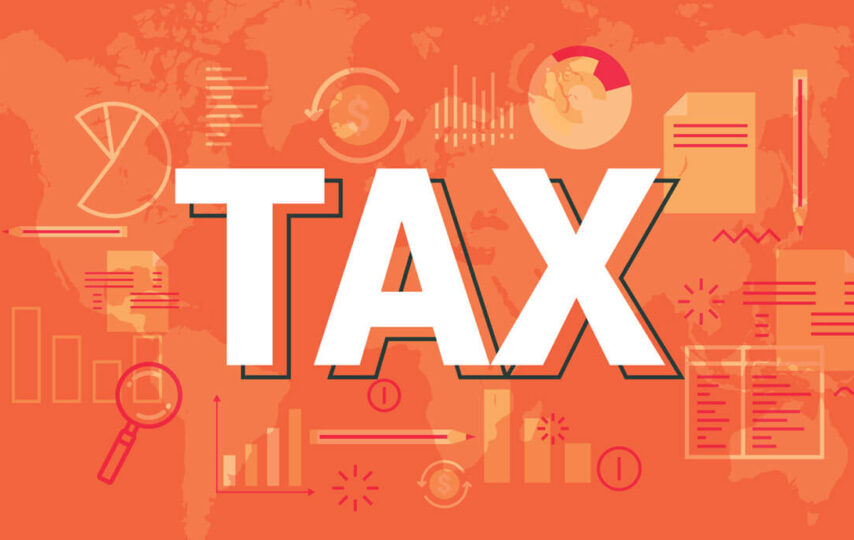Navigating the complex world of tax laws and regulations can be a daunting task. With constantly changing rules and regulations, it is crucial to have a knowledgeable and experienced tax advisor by your side. However, with so many options available in today’s market, choosing the right tax advisor can be overwhelming.
Like embarking on a journey through an unknown territory, selecting a tax advisor requires careful planning and preparation. The consequences of choosing the wrong advisor can result in costly mistakes or missed opportunities. This article aims to provide guidance on how to navigate the tax advisory services landscape by understanding the different types of advisors available, asking the right questions when choosing an advisor, identifying key qualities to look for in an effective advisor, and making informed decisions that align with your specific needs.
## Understanding the Different Types of Tax Advisors
An understanding of the various categories of professionals who provide tax advice is essential for individuals seeking to make informed decisions regarding their financial affairs. The first category of tax advisors comprises certified public accountants (CPAs). These professionals have passed a uniform national examination and met additional state education and experience requirements to obtain their certification. CPAs are qualified to prepare tax returns, provide general accounting services, and offer strategic tax planning advice. For more information on the diverse types of tax advisors specializing in CPA accounting, explore how these professionals offer specialized expertise in areas such as tax planning, audit preparation, and financial reporting.
Another type of tax advisor is an enrolled agent (EA). This professional has passed a rigorous exam administered by the IRS that covers all aspects of taxation. Enrolled agents specialize in preparing individual and business tax returns, representing clients before the IRS, and providing advice on complex issues such as estate planning or international taxation. When selecting a tax advisor, one should consider both certifications and experience levels. Additionally, large firms may offer extensive resources but lack personalized service while boutique firms can provide tailored attention but might not have the same level of expertise in all areas.
Asking the Right Questions: What to Consider When Choosing a Tax Advisor
The section on Questioning Qualifications provides a comprehensive checklist for evaluating the important credentials of potential tax consultants. It is crucial to ensure that the tax advisor possesses all the necessary qualifications and experience to handle your specific tax situation. Key factors to consider include their educational background, professional certifications, and years of experience in providing tax advisory services.
Apart from qualifications, communication skills are also an important consideration when choosing a tax advisor. Effective communication is essential for building trust and ensuring that both parties have a clear understanding of each other’s expectations and goals. It is imperative to work with an advisor who can explain complex tax concepts in simple terms while keeping you informed throughout the entire process. Furthermore, the ability to listen attentively and respond appropriately will help build a strong working relationship between you and your advisor. Therefore, it is crucial to ask questions about their communication style during the selection process.
Qualities of a Great Tax Advisor: What to Look For
Evaluating the qualities of a great tax advisor involves an objective assessment of their essential skills and attributes. Experience and qualifications are both crucial factors to consider when choosing a tax advisor. While experience provides practical knowledge, qualifications demonstrate technical expertise in the field. A great tax advisor should have a balance of both qualities to offer valuable insights and strategies for clients.
Red flags to watch out for include advisors who make unrealistic promises or guarantees, lack transparency in their fees, or show signs of unethical behavior. Trust is vital in the client-advisor relationship, and any indication of dishonesty or misconduct should be taken seriously. Additionally, excellent communication skills are critical for building trust and maintaining effective relationships with clients. A great tax advisor should be able to explain complex concepts clearly, listen actively to clients’ concerns, and provide timely responses to inquiries. Finally, adaptability is essential as the tax environment is continually evolving; therefore, a good tax advisor must stay updated on regulatory changes and adjust their advice accordingly while still providing customized solutions that align with clients’ goals.
Making an Informed Decision: Choosing the Right Tax Advisor for Your Needs
Selecting a tax advisor requires careful consideration of various factors. One of the most important is the advisor’s experience and qualifications. While both are critical, there can be a distinction between them in terms of priority depending on one’s personal or corporate needs. For example, individuals may prioritize finding an advisor with extensive experience dealing with individual tax returns and navigating complex personal finances. In contrast, corporations may prioritize finding an advisor with specific qualifications such as knowledge of international tax laws or expertise in handling mergers and acquisitions.
Transparency in fees is another vital factor to consider when selecting a tax advisor. It is essential to understand how much you will be paying for their services upfront before entering into any agreements or contracts. Look for advisors who offer clear pricing structures and are willing to discuss their fees openly. Additionally, ethical behavior is crucial when choosing a tax advisor; they should adhere to professional codes of conduct and prioritize the client’s best interest above all else. Communication skills are also vital as advisors need to explain complex information clearly while being responsive to clients’ questions and concerns. Finally, given the ever-changing nature of tax regulations globally, adaptability is crucial when selecting a tax advisor who can anticipate future changes and respond proactively by adjusting strategies accordingly.
Frequently Asked Questions
How much should I expect to pay for tax advisory services?
Tax advisor pricing can vary greatly depending on the complexity of the tax matter and the level of expertise required. Negotiating fees with a tax advisor is a common practice, but it is important to consider the value that their services will provide. A low fee may seem attractive, but if it results in subpar advice or incomplete filings, it could end up costing more in penalties and interest. It is advisable to obtain a clear understanding of the scope of work involved before agreeing on a fee structure. This can be achieved by discussing expectations upfront and ensuring that all potential fees are disclosed beforehand. Ultimately, finding an experienced tax advisor who provides quality service should be prioritized over seeking out the lowest price point.
What is the typical process for working with a tax advisor?
“Time is money”, and working with a tax advisor can save you both. The typical process for working with a tax advisor involves the following steps: initial consultation, gathering of financial information, analysis and preparation of tax returns, and ongoing communication. Tax advisors have various responsibilities including providing advice on complex tax issues, recommending strategies to minimize taxes, and ensuring compliance with tax regulations. The benefits of working with a tax advisor include minimizing the risk of errors on your return, maximizing deductions and credits, reducing the likelihood of an audit, and saving time by delegating these tasks to a professional who has expertise in this field.”
Can a tax advisor help me with tax planning for my small business?
Small business owners are often looking for ways to maximize their profits and minimize their tax liabilities. A tax advisor can provide assistance with tax planning strategies that may help achieve these objectives. Small business deductions, such as expenses related to home office use, vehicle expenses, and health insurance premiums, can be identified and utilized to reduce taxable income. In addition, a skilled tax advisor can recommend tax saving strategies for entrepreneurs, including taking advantage of retirement account contributions, structuring the business entity in a beneficial way, and timing income recognition and expense deductions appropriately. By working with a knowledgeable tax advisor who understands the needs of small businesses, entrepreneurs can develop a comprehensive plan that addresses both current needs and long-term goals.
How can I ensure that my tax advisor is up-to-date on the latest tax laws and regulations?
Staying up-to-date on the latest tax laws and regulations is crucial for tax advisors. Continuing education is one way for tax advisors to ensure that they stay current with changes in the industry. This type of education can take many forms, including attending conferences, webinars, or workshops. Industry associations also play a vital role in keeping tax advisors informed about new developments in the field. These organizations often offer access to exclusive resources and networking opportunities, allowing professionals to learn from their peers and stay connected with industry trends. To ensure that your tax advisor is up-to-date on the latest tax laws and regulations, it’s essential to ask about their continuing education efforts and involvement with industry associations.
Are there any red flags I should look out for when choosing a tax advisor?
When choosing a tax advisor, it is important to be aware of potential red flags that could indicate the individual may not be the right fit for your needs. One such red flag to look out for is questionable billing practices, such as charging excessively high fees or failing to provide detailed invoices and receipts. It is also important to verify that the tax advisor has adequate professional certifications and qualifications, as this can help ensure they are up-to-date on the latest tax laws and regulations. Taking these factors into consideration can help you make an informed decision when selecting a tax advisor that meets your needs and preferences.
Conclusion
In conclusion, choosing the right tax advisor can be a daunting task, but it is crucial for your financial success. It’s important to understand the different types of tax advisors available, ask the right questions, and look for specific qualities in a great tax advisor. Keep in mind that finding the right fit for your needs takes time and research.
Think of the process like searching for a needle in a haystack – there are many options out there, but with careful consideration and attention to detail, you can find the perfect match for your tax advisory needs. By following the guidelines outlined in this guide and taking an informed approach to decision-making, you’ll be able to navigate through the world of tax advisory services with confidence and ease.







